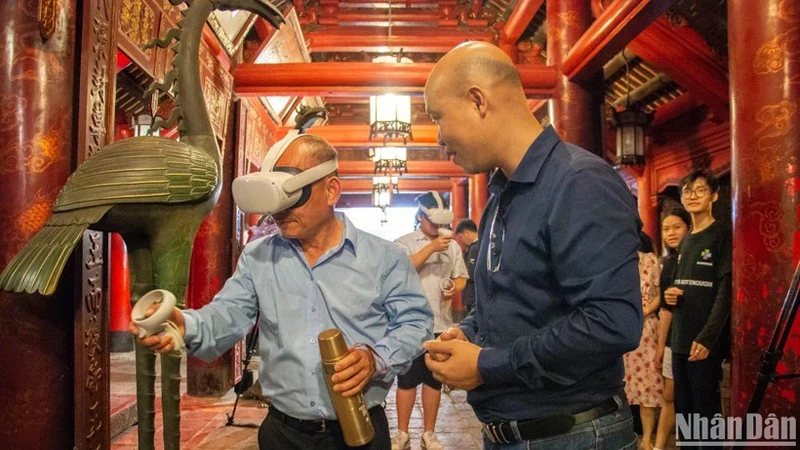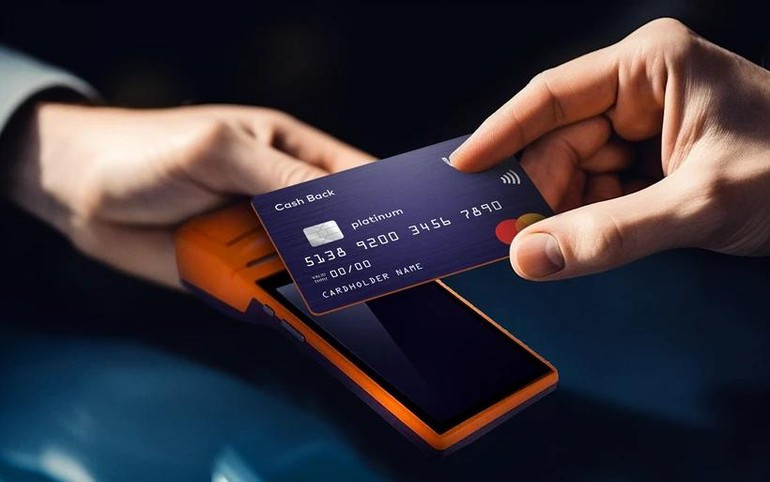Vietnamese travellers’ expectations for future of digital tourism
As technological advancements continue to redefine travel experiences, convenience and efficiency remain top priorities for many Vietnamese tourists, both on domestic journeys and trips abroad. At the same time, global trends are influencing their evolving demands for tourism experiences. Saturday, May 31, 2025 at 15:00

Digital travel experiences
According to a report by The Outbox Company, a leading travel market research firm in the Asia-Pacific region, the most anticipated digital tourism services in Viet Nam and globally revolve around flexible, widely accessible, and improved international payment systems.
The survey revealed that 72% of respondents hope for seamless payment solutions at hospitality, dining, and shopping venues. There is growing demand for cashless transactions, e-wallets, and alternative payment methods during their travels.
Virtual reality (VR) technology is becoming increasingly common at historical and cultural sites and museums in Viet Nam. It allows users to immerse themselves in recreated historical scenes, listen to stories from the past, and gain a holistic view of the spaces they are visiting.
Survey results showed that 60% of Vietnamese travellers expect VR to play an important role in their journeys of discovery. Among these, outbound travellers showed slightly greater interest (63%) compared to domestic travellers (58%). This difference suggests that outbound tourists are more familiar with advanced digital experiences.
Meanwhile, AI chatbots, smart assistants for the tourism sector, are seen as valuable tools that can offer real-time customer support. From personalising travel experiences to improving business operations, this technology is becoming more popular in the digital era.
However, a significant gap remains in the demand for AI chatbots between domestic and outbound travellers. Of the Vietnamese who had travelled abroad and participated in the Outbox survey, 51% expressed a desire to use AI chatbots for destination-related activities. This contrasts with only 41% of domestic tourists expressing the same interest.
For outbound travellers, offline access to maps and translation tools was rated as extremely important. Around 65% of them hoped to see improvements in this technology, compared to 52% of domestic travellers. This notable gap highlights the language barriers and connectivity challenges often faced by international tourists. Offline access to such tools has thus become an essential requirement.
Additionally, emerging technologies such as RFID e-tags and robotic assistants are attracting the interest of some tourists. This trend indicates that international travellers are more likely to encounter problems at airports and hotels worldwide, prompting them to rely more on smart travel solutions compared to those travelling domestically.
Adopting digital tools through travel experiences
Today’s tourists are increasingly inclined to use practical digital tools to enrich their travel experiences. These include navigation maps, VR applications, and digital payment systems.
In particular, those who have visited multiple countries tend to have higher expectations when it comes to technology-enhanced tourism services. Exposure to various technological solutions in different countries shapes their habits when exploring new destinations. As a result, they also set higher standards for service quality and relevant activities throughout their journeys.
The Outbox Company notes that Vietnamese tourists are adopting digital travel experiences at varying levels. This adoption is largely influenced by their international travel exposure.

Flexible payment solutions—such as cashless transactions and e-wallets—remain the top priority for Vietnamese travellers. This pressing demand requires service providers in tourism, shopping, dining, and accommodation sectors to regularly update and improve their systems.
In addition, expectations surrounding the application of VR technology and AI chatbots signal a shift from traditional tourism to digital and immersive experiences for domestic tourists. Many travellers are now using these tools not only for trip planning but also throughout their journeys.
Vietnamese travellers who frequently go abroad increasingly rely on translation tools, offline maps, and smart luggage. These solutions support better mobility and ensure smoother, more convenient journeys to international destinations.
The Outbox Company concludes that Vietnamese tourists are engaging with digital travel experiences at multiple levels, depending on their international travel exposure.
While the use of automation and robotics in travel product management is gaining attention, actual implementation still lags behind the development of flexible payment and augmented reality (AR) solutions. Cashless payments and e-wallets continue to be considered essential for facilitating quick and convenient shopping.
According to experts from The Outbox Company, understanding the differing needs of Vietnamese travellers—whether they are exploring the country or heading overseas—can help tourism and travel service providers adapt their digital transformation strategies. This, in turn, will enhance the overall quality of travel experiences.








